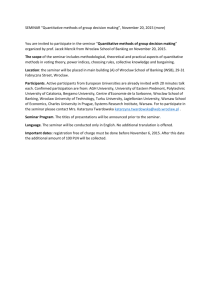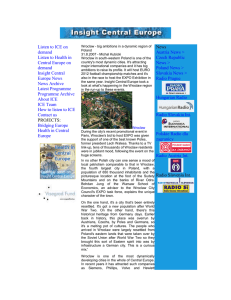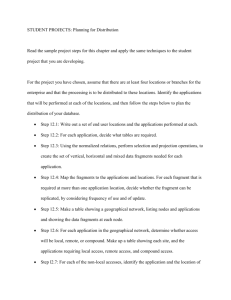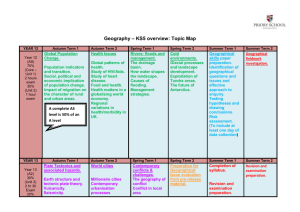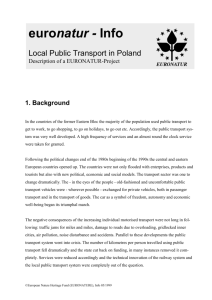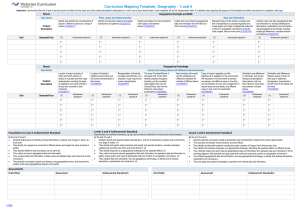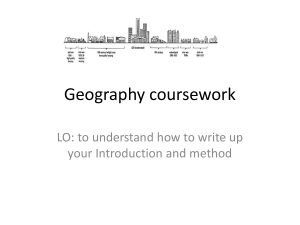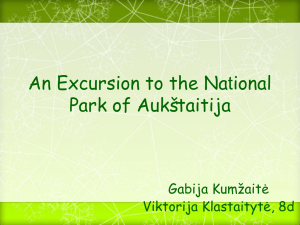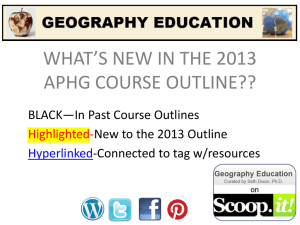Europe – a myth, reality, dream or community project?
advertisement
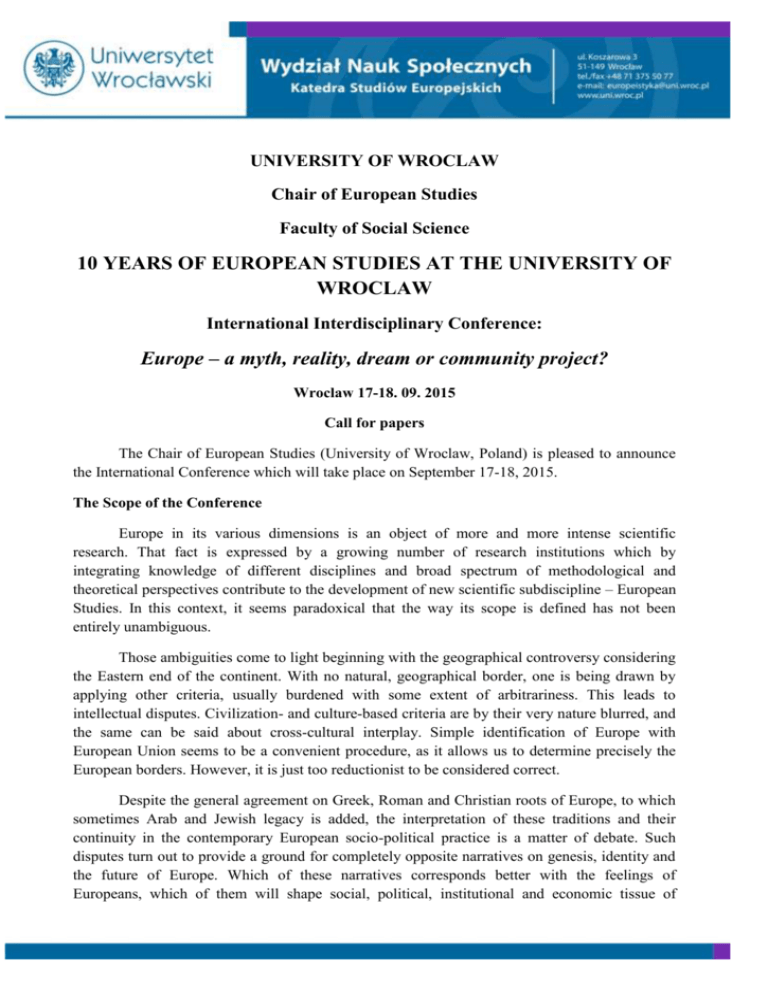
UNIVERSITY OF WROCLAW Chair of European Studies Faculty of Social Science 10 YEARS OF EUROPEAN STUDIES AT THE UNIVERSITY OF WROCLAW International Interdisciplinary Conference: Europe – a myth, reality, dream or community project? Wroclaw 17-18. 09. 2015 Call for papers The Chair of European Studies (University of Wroclaw, Poland) is pleased to announce the International Conference which will take place on September 17-18, 2015. The Scope of the Conference Europe in its various dimensions is an object of more and more intense scientific research. That fact is expressed by a growing number of research institutions which by integrating knowledge of different disciplines and broad spectrum of methodological and theoretical perspectives contribute to the development of new scientific subdiscipline – European Studies. In this context, it seems paradoxical that the way its scope is defined has not been entirely unambiguous. Those ambiguities come to light beginning with the geographical controversy considering the Eastern end of the continent. With no natural, geographical border, one is being drawn by applying other criteria, usually burdened with some extent of arbitrariness. This leads to intellectual disputes. Civilization- and culture-based criteria are by their very nature blurred, and the same can be said about cross-cultural interplay. Simple identification of Europe with European Union seems to be a convenient procedure, as it allows us to determine precisely the European borders. However, it is just too reductionist to be considered correct. Despite the general agreement on Greek, Roman and Christian roots of Europe, to which sometimes Arab and Jewish legacy is added, the interpretation of these traditions and their continuity in the contemporary European socio-political practice is a matter of debate. Such disputes turn out to provide a ground for completely opposite narratives on genesis, identity and the future of Europe. Which of these narratives corresponds better with the feelings of Europeans, which of them will shape social, political, institutional and economic tissue of Europe? This issues remain unsettled. This is a reason why it is advisable also to consider whether the above-mentioned pillars, that together created axiological sphere for the rise of the phenomenon called Europe, are still its constitutive elements. Perhaps they spontaneously disappear, are deliberately transformed or naturally evolve into something different. If any of these processes actually occurs, the question remains – does it encompass (and if so, to what extent) the entire geographical Europe? Is it still justified to speak of Europe as a community of tradition, values, and institutional and political systems anchored in them? Or maybe Europe becomes a mere name for geographical location within which various axiological particularisms cooperate or compete? And what about those who inhabit Europe, but have come here from culturally distant areas? Can Europe offer them a sense of community? What offer do they expect and are willing to accept? What would the resulting community look like – will it only entail assimilation of non-European traditions, or rather turn into a cultural, institutional and political transformation of Europe itself? The questions posed above inevitably evoke a list of identity issues. If we tentatively accept as true the thesis on cultural-axiological European community, the question arises – should we expect the emergence of a corresponding collective identity, namely the European identity? The elements of such identification are noticeable within the EU but the question remains – is this phenomenon representative of the whole Europe? How and in what way will it affect and be affected by already existing and well established collective identities? Coming back to the question formulated in the title of the conference – what Europe actually is? Is it: A myth of axiological community and continuity, which perhaps had existed in the past but was only a prelude to the contemporary disintegration and decomposition into a number of competing particualrisms? An actually existing community of practices, endeavours and values that constitute them, embodied in the projects of integration which, however, have been implemented with a varied intensity and extent in various spheres (political, economic, socio-cultural) and levels (local, regional, national, transnational) of Europe? A dream about a community, an ideological asymptote that can never be fully achieved and yet possesses a potential for mobilization, as it is anchored in our memory of tragic outcomes resulting from the struggle between national, religious and ideological particularisms? A project in progress that is still negotiated on - promising for some and threatening for others, considered an attempt at arbitrary settlement on what is the essence of Europe, or perhaps a space for negotiations and inclusion of various points of view? We are happy to invite representatives of different academic disciplines to a debate on all the above-mentioned (and other, related) issues. Europe's multidimensional character makes it a fascinating object of studies, not only for specialists in European Studies and political science but also for economists, lawyers, historians, sociologists, anthropologists and many others. Europeness and the meaning of European community will be discussed within four main thematic lines: culture and identity, politics, economy, law. We also encourage participants to propose thematic panels (see application form). Conference fee: Registration fee: 100 euro The number of bank account will be available within two weeks The fee does not include accommodation. If you need assistance with accommodation arrangements, please contact the organizer. Contact person: Maciej Bachryj-Krzywaźnia, PhD e-mail: maciej.bachryj@uni.wroc.pl
